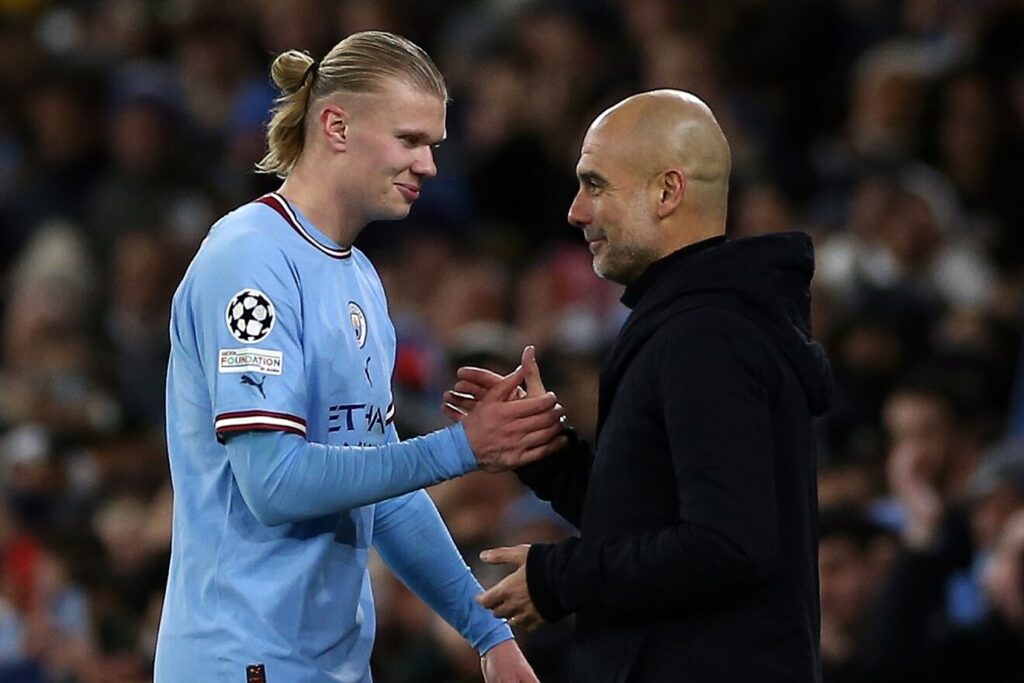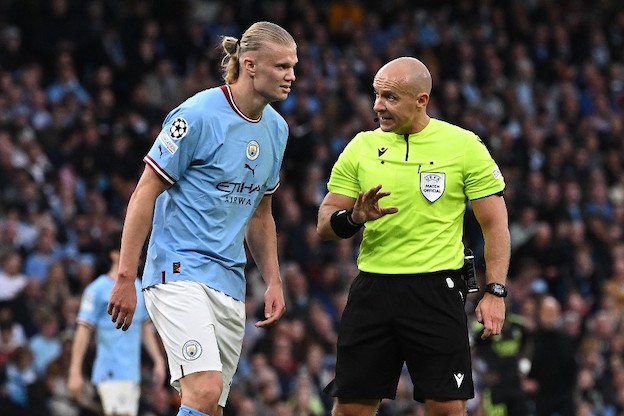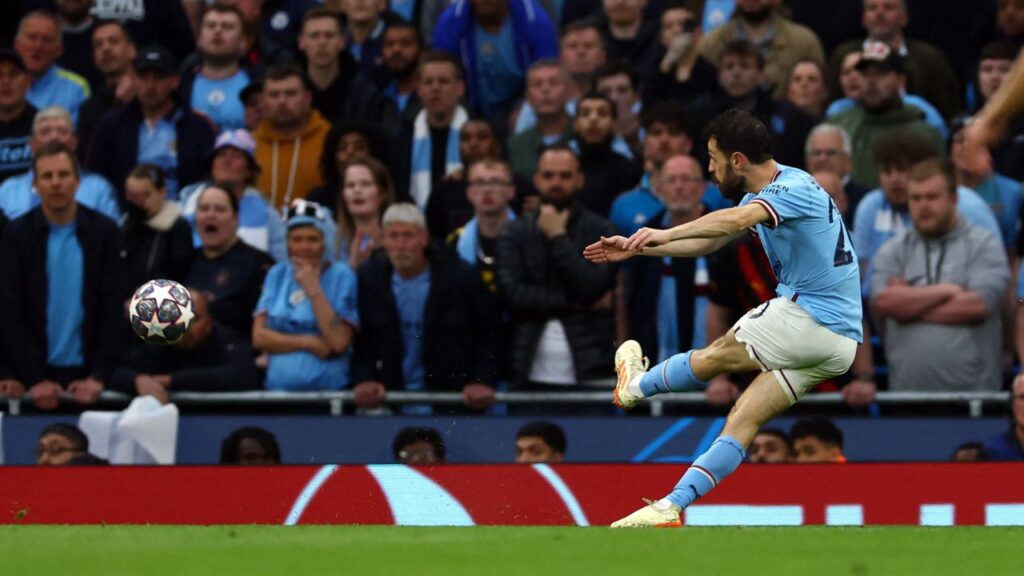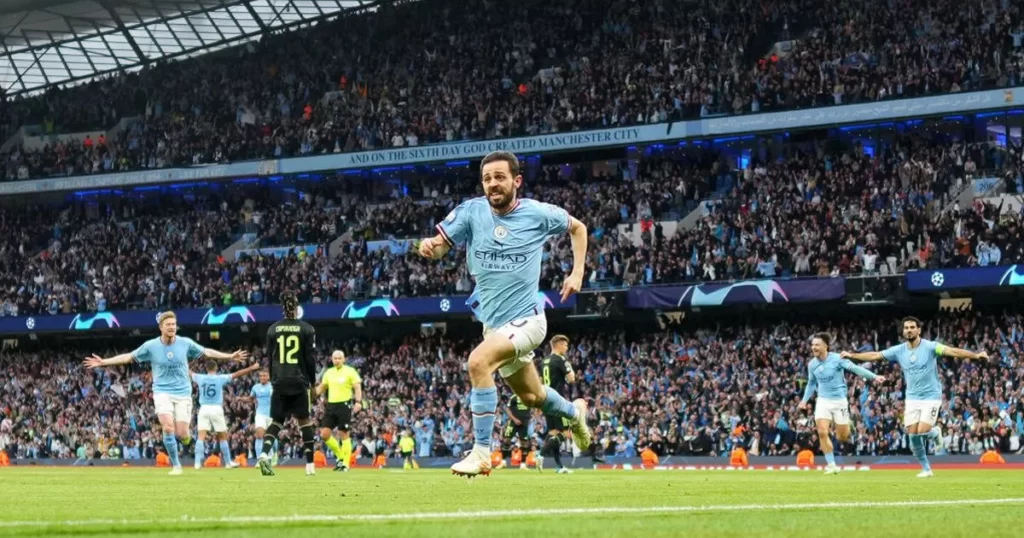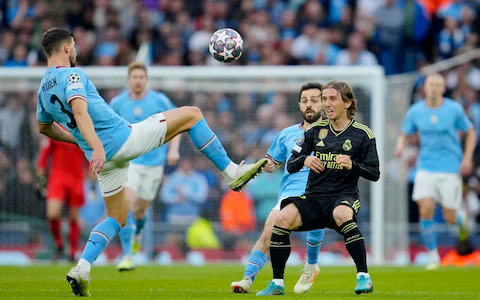In a display of relentless power on the grandest stage, Manchester City ruthlessly crushed Real Madrid, cementing their status as the most dominant club in Champions League history. The match ended in a resounding 4-0 victory for City, with Real Madrid left reeling from the overwhelming pressure. Thibaut Courtois’ acrobatic saves spared Madrid from complete humiliation, but City’s performance under Pep Guardiola was nothing short of footballing perfection. It was a masterclass that showcased their superiority, leaving no doubt about their prowess.
What remains after such a monumental clash? Sadly, very little of the once-great Madrid side. While it was evident that a transition was needed, no one anticipated such a sudden decline. Luka Modric, who had a dismal performance, was substituted on the 63rd minute. Toni Kroos, equally underwhelming, followed shortly after. Karim Benzema appeared aged and weary. Will they ever grace a game of this magnitude together again? Perhaps not. In their moment of urgency, Madrid found themselves attempting to challenge the world’s best passing team with nothing but reputation and history. The numbers themselves told the story: at the time City scored their first goal, they had completed 196 passes compared to Madrid’s mere 30. Rodrygo didn’t even touch the ball until the 14th minute. During the first half, City had 196 touches in the final third, while Madrid managed only 10. It wasn’t just dominance; it was a cruel display of superiority. City dismissed Madrid with an air of indifference.
With due respect to Matteo Darmian and Edin Dzeko, it seems almost certain that City will finally quench their Champions League thirst against Internazionale in Istanbul next month. They stand unequivocally as the best team in the world, and their dominance has become a foregone conclusion. This level of performance is not a recent development for City. The last team to eliminate them over 180 minutes in this competition was Tottenham. It was only a matter of time before City reached the finish line.
While most clubs operate within financial constraints and hope to address their flaws in the future, Guardiola and City enjoy unlimited resources. They acquire the staff and players they desire without delay. They sign Erling Haaland and bring in Julián Álvarez to provide him with rest. They secure Kalvin Phillips for £45m, and his lack of game time is inconsequential. And in a stunning display of audacity, they identify the need for an upgrade on Phil Foden and promptly sign Jack Grealish. When faced with accusations of breaking rules, they employ the world’s greatest lawyers to defend them. This is not just perfection; it is the perfection of a meticulously executed military campaign, the perfection that stems from boundless wealth and political influence, the perfection embodied by an extravagant crystal pyramid in the middle of a desert. Not a single academy player or local Mancunian started for City on that night. Does it matter? Does anything truly matter?
At this point, City fans deserve to revel in their triumph. This journey and success belong to them as much as anyone else, and with perspective, they may realize that they are not as universally despised as they believe. However, for the neutral observer, the overwhelming sentiment is one of indifference—a resigned acceptance of the relentless march of hard power. In a sport where tarnish touches everyone, City fans have earned their moment of glory, but it is also reasonable for others to feel unaffected by it all.
